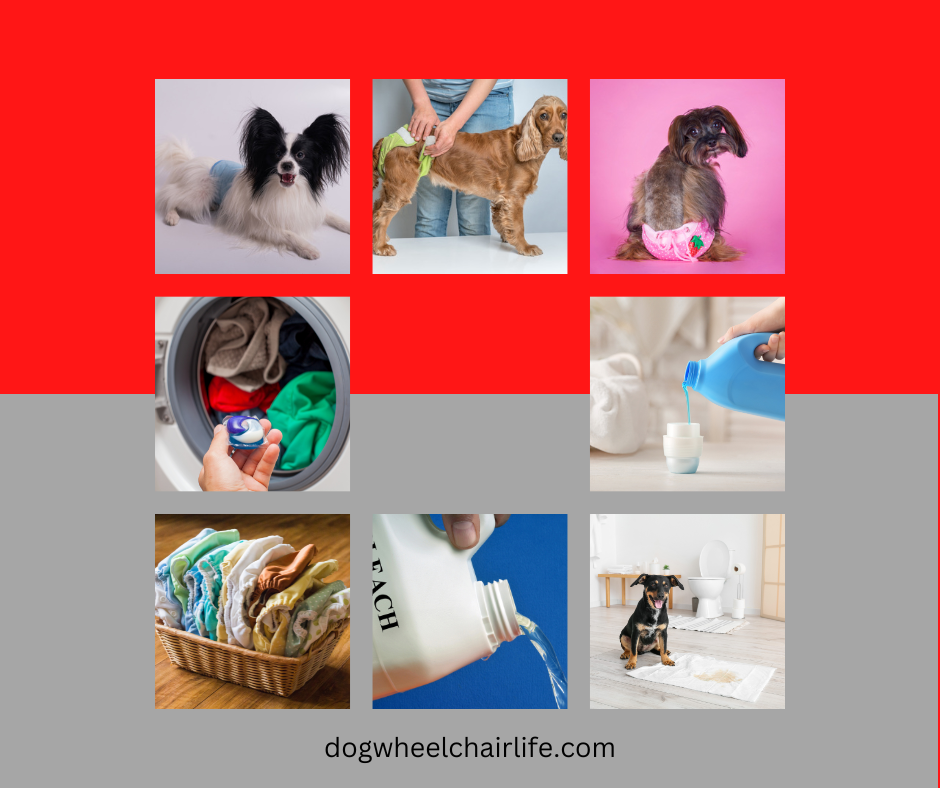What causes dog paralysis? How do I take care of my dog when she can’t walk? Where do I find a dog wheelchair? What treatments are available? These are some of the questions that you can get answers to when you join a support group for pet owners of disabled dogs.


Ask & Discover
Get personalized content recommendations and answers drawn from our website. Simply type your question or topic of interest, and our AI assistant will help you find relevant articles, tips, and insights. You can also have a natural conversation to explore topics in more depth.
Support Groups For Disabled Pets
Support groups are a great way to get educated about the care your pet requires and to surround yourself with the support you need now and in the future.
We’ve all heard the saying, “You have to take care of yourself before you can care for anyone else.” Support groups exist to help us take control. If you share your life with a dog who has a mobility problem, there are many reasons to take part.

eBook
Find The Right Dog Wheelchair For Your Pet
Your dog has a mobility problem, and you want to buy a wheelchair. But do you know what kind of cart will work best for your dog’s individual needs? After a decade of teaching pet owners how to make the right choice, I put the information into an eBook!
Goals of a support group for pet owners
There are good days and hard days when you’re the caretaker of a handicapped dog. Being a member of a support group provides a pet owner with the opportunity to talk with people who are going through the same experience.
Members are there to:
The group is a place to gain information to help your pet and a place where you can take time for yourself.
How to choose the right support group

Many pet parents find the right support group through their veterinarian or canine rehab specialist. It’s a good starting point.
If the veterinary professionals in your life aren’t sure where to turn, search through social media sites, like Facebook or LinkedIn. Both of these websites pride themselves in serving members through support groups.
Do a little research before joining a group. Most organizations list their mission statement and goals on their websites and social media pages. Read through the descriptions and select the support group with goals that meet your needs.
The mechanics of online groups
Online support groups enable pet owners from around the globe to take part. The process to join includes answering membership questions and being approved by a site administrator.
Once pet owners are approved to be a member, they are free to ask a question, share an experience, post a photo or offer advice.
Group moderators are always present to monitor discussions. They offer their expertise and recommendations about everything from products to treatments and medical procedures.
In addition, members can interact with each other whenever they need. One of the benefits of an online support group is that members have 24-hour access to ask for help. They don’t have to wait for a live meeting to bring up a question.
Both in-person and online groups provide education, moral support, treatment tips and resources. Many groups also use videos and guest speakers to instruct members.
Group discussions cover topics such as:

Get the Essential Guide
The Essential Guide of Products for Handicapped Dogs e-book is a labor of love for me. I wrote it to answer your most pressing questions about where to find the best products for your wheelchair dog. You’ll find products you didn’t know existed and each will improve your dog’s quality of life. Print a copy and keep it by your side.
Support groups with one focus vs. many

Another condition you should weigh before joining a support group is to decide if you want a group with one main focus or many. Some support groups limit the scope of their education to a single mobility problem while others choose to include several.
For instance, the Paralyzed Pet Sitting Network, is a support and networking group for pet owners who need someone to stay with their dog while they’re away. Pet owners join the group and exchange pet sitting services with another owner in their area. The group fills a gap for pet parents and has flourished since it started in 2022.
Dodgerslist is another single themed support group that focuses on Intervertebral Disc Disease. Because so many dogs are diagnosed with IVDD, the group focuses on in-depth information on that one particular health problem.
This is helpful if your dog’s been diagnosed with IVDD, but if your dog’s disability is caused by another condition, the information you learn, might not benefit your pet.
A support group that focuses on a variety of mobility problems and treatment options will include these topics:
Advice from a veterinarian
Melissa Shapiro, DVM, owner of Visiting Vet Service in Westport, Connecticut, credits advances in equipment, medicine, and social media with improving the lives of disabled pets.
Dr. Shapiro is also the founder of the social media phenomenon @pinkpigletpuppy, which features her deaf and blind dachshund-Chihuahua mix.
Shapiro advices pet owners to include their dog’s veterinarian in their support system. She believes that attitudes toward handicapped pets are changing.
Veterinarians play an important role in guiding pet parents toward the resources and support they need to care for their animals.
Melissa Shapiro, DVM
The takeaway
Caring for a special needs dog is rewarding and challenging. Thanks to advancements in medicine, technology, attitudes, and social media, pets with disabilities are living longer, happier lives with their owners. But caring for a handicapped pet requires support. You will find your life easier to navigate if you have a trusted veterinary team and a network of like-minded people to guide you.
Lauren Lee – Contributing writer for this story
Want to read more?
Click here to see products from our Amazon Shop.











Leave a Reply